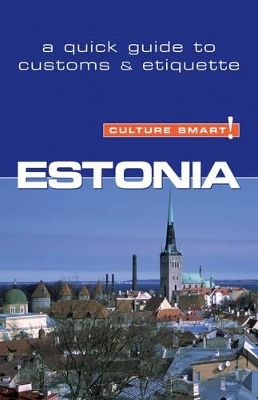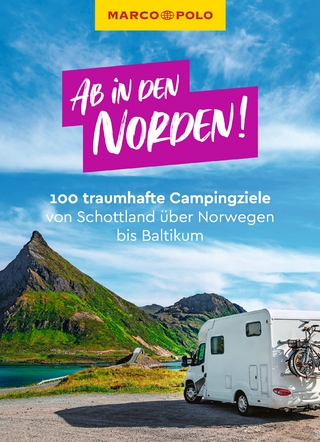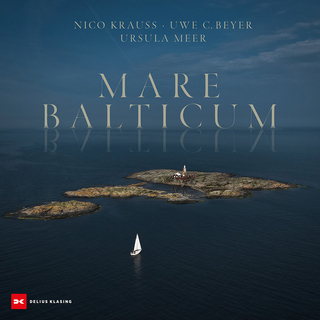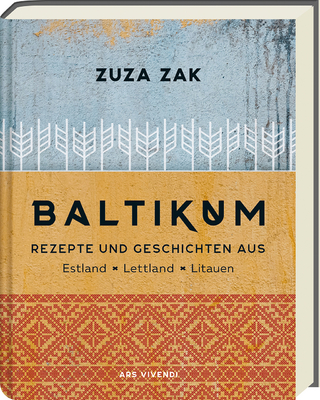
Estonia - Culture Smart!
Kuperard (Verlag)
978-1-85733-353-4 (ISBN)
For a nation of around 1.3 million inhabitants, Estonia has made a real impression on the world stage since regaining its independence less than two decades ago. In the mid-1980s, it was known, if at all, as a Soviet backwater, but the collapse of Communism saw the emergence of a republic determined to make up for lost time and establish itself as a forward-thinking Western state.
For all their love of entrepreneurship, the digital age and all it has to offer, Estonians are quiet and reserved, hardworking, fiercely jealous of their privacy, and lovers of nature. They can seem distant, almost rude on first meeting, but if you make the effort to get to know them, their sincerity and self-deprecating humor shine through. As one businessman who works in Tallinn observed, “an Estonian friend is a friend for life.”
Culture Smart! Estonia is for any visitor—whether businessperson, student, or tourist—who wants to understand Estonian society and be culturally prepared for a visit. We trace the country’s turbulent history and try to see how the past has shaped the collective and personal values of today’s Estonians. We look at the Estonian people at work, at play, and at home, and offer tips to help you get along with Estonian colleagues and acquaintances—without any awkward silences!
I was born in Islington, London, of a Scottish father and Estonian mother. I have a degree in English from Cambridge University (Jesus College), a Post Graduate Certificate in Education from the Institute of Education, London, and an MA in education from University College (UCL), London. I first visited Estonia in 1989, before the collapse of the Soviet Union. I returned with my Estonian-born mother the following year and this was my most memorable experience of travel: my mother met her childhood friend, who was deported aged 10 from Estonia to Siberia under Stalin, and was now back in Tallinn. It is the first time I heard my mother speak Estonian (she did not teach it to her children believing it to be a useless language) and also because, as a World War Two refugee fleeing Stalin, she focused on becoming English . To hear your mother from Notting Hill speaking her native tongue for the first time on the communal stairs of a dilapidated Soviet appartment block is a disorienting experience, but not a bad one. Estonians are straight-talking. If you ask: How are you?, they may well say: Not at all well, as opposed to the assumed: Fine, and you?. Having worked as a journalist and writier, I am now teaching piano and learning to play the organ. I am a parent governor at St Marylebone C of E secondary school in London, which our teenage daughters attend. They are still learning to speak Estonian and love cross-country skiing in the Estonian pine forests. We hope Putin will not gobble Estonia up. My first book was The Singing Revolution: A Political Journey through the Baltic States (1991, Michael Joseph).
Brief History Politics - Economic Life Traditions - Friendships & Family Relationships Bureaucracy Religion Humour - Local Holidays Taboos Invitations Gifts Dress - Business etiquette - Punctuality & Appointments - Team working Communication Negotiating - Women in Society Tips - Eating Out - Traditional Food - Dos and Don t - Making Friends
| Erscheint lt. Verlag | 29.10.2007 |
|---|---|
| Reihe/Serie | Culture Smart! |
| Zusatzinfo | Illustrations |
| Verlagsort | London |
| Sprache | englisch |
| Maße | 110 x 169 mm |
| Themenwelt | Bildbände ► Europa ► Baltikum |
| Reiseführer ► Europa ► Baltikum | |
| Sozialwissenschaften | |
| ISBN-10 | 1-85733-353-5 / 1857333535 |
| ISBN-13 | 978-1-85733-353-4 / 9781857333534 |
| Zustand | Neuware |
| Informationen gemäß Produktsicherheitsverordnung (GPSR) | |
| Haben Sie eine Frage zum Produkt? |
aus dem Bereich


